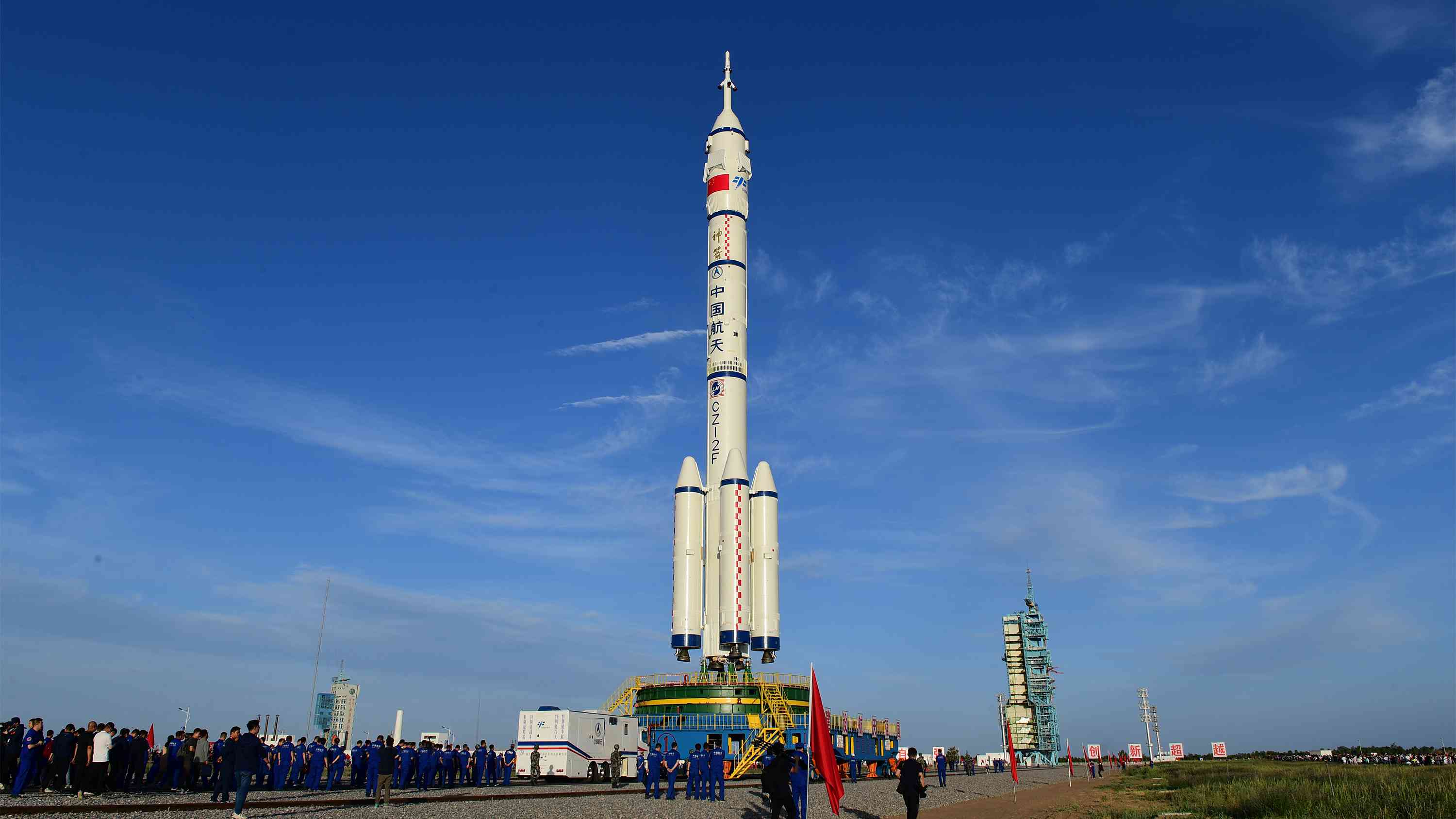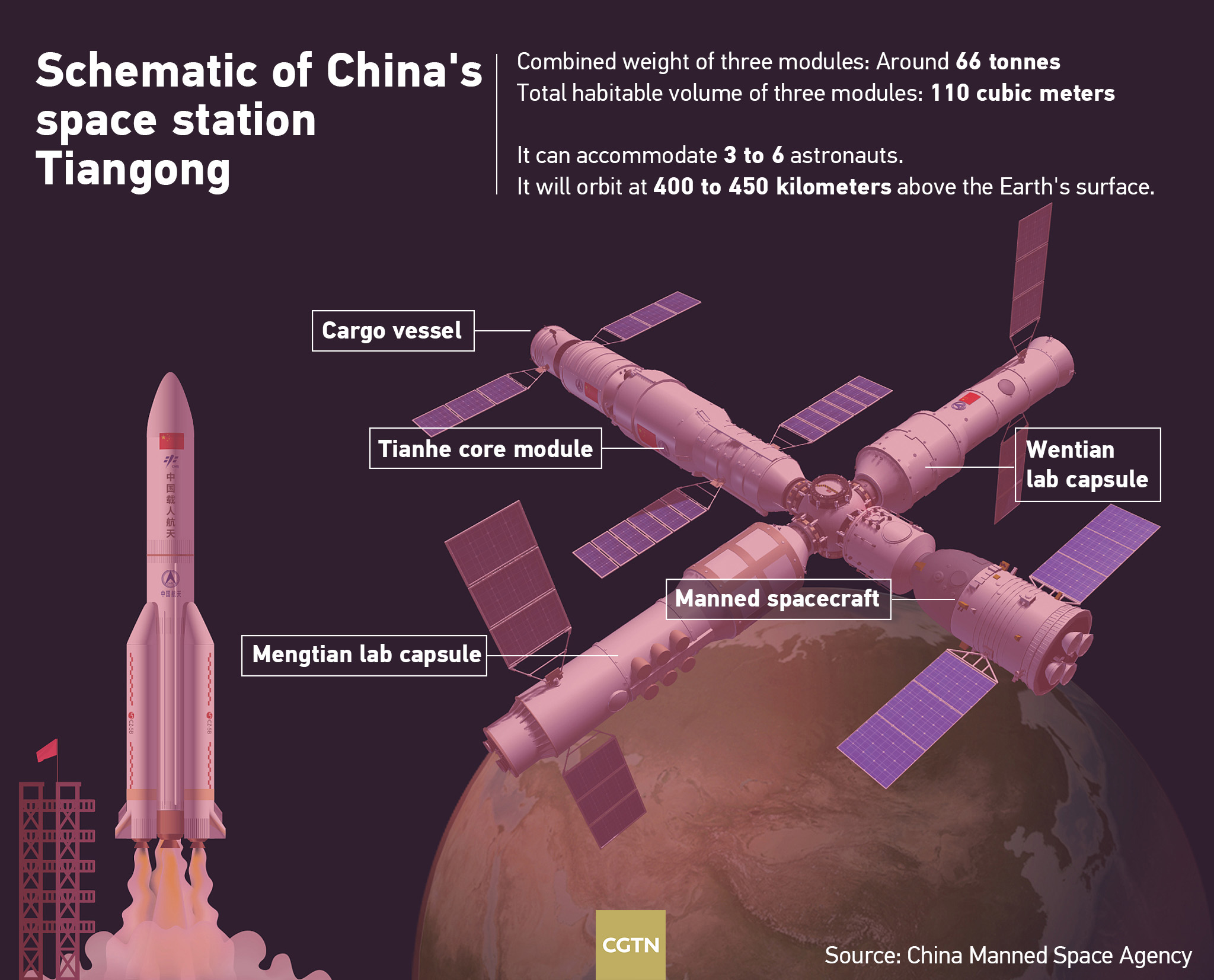
The Long March-2F Y12 rocket, carrying the Shenzhou-12 spacecraft for China's manned space mission, arrives at the launch pad at Jiuquan Satellite Launch Center, NW China, June 9, 2021. /CGTN
The Long March-2F Y12 rocket, carrying the Shenzhou-12 spacecraft for China's manned space mission, arrives at the launch pad at Jiuquan Satellite Launch Center, NW China, June 9, 2021. /CGTN
Editor's note: Andy Mok is a research fellow at the Center for China and Globalization in Beijing. The article reflects the author's opinions and not necessarily the views of CGTN.
Successful space exploration bestows not only national prestige but also serves as a catalyst for important technological advances in fields ranging from advanced robotics to materials science and healthcare. But like the current challenges facing the global semiconductor industry, it also serves as another example of myopic and self-defeating American hegemonic impulses motivated by anxiety, chauvinism and pettiness.
While the name "International Space Station" suggests inclusion, like groups such as the U.S.-dominated G7 which claims to represent the world's most significant economies, the reality is somewhat different. For both, China has been excluded even though it would be more sensible and mutually beneficial for it to be included if inclusion were decided by any objective criteria.
First developed as a solely American undertaking, the International Space Station (ISS), which launched to great fanfare on November 20, 1998, is the only space station currently in operation. But due to restrictions imposed on the U.S. space agency NASA by Congress in 2011, China has been excluded from any involvement.
Not surprisingly, China embarked on its own space program, which has achieved numerous successes in the four types of space exploration: flyby, orbiter, rover and human space exploration. These achievements include the only lunar landing in the past 40 years and being the only country to have landed on the far side of the Moon. Its achievements in the four types of space exploration place it on par with Russia and the United States as space exploration pioneers.
China reached another important milestone earlier this month when three taikonauts aboard the Shenzhou-12 spacecraft docked with the Tianhe, the core module of the Tiangong space station, a modular orbiting platform that will be completed in 2022. When complete, Tiangong, which means Heavenly Palace, will become the largest piece of space infrastructure operated by a single country in near-Earth orbit.
Moreover, the ISS faces an uncertain future with Russia declaring that it will end its participation in 2025 and as concerns mount about the ISS's increasingly dated technology and the ability of the U.S. to maintain financial support in the face of growing domestic and other challenges. As such, the Tiangong space station may be not only the most technologically advanced but also the only operational space station in a few years.

And so, June 2021 marks the beginning of a new stage in China's space dream. According to crew commander Nie Haisheng, who is also China's oldest astronaut in space at the age of 56, "China's space exploration development has crystallized the Chinese people's 1,000-year dream of flying to the sky and added a heroic chapter to the 100-year history of the struggle of the Party."
Moreover, China's space odyssey parallels its struggles and triumphs on Earth. Despite the determined opposition of the most powerful and ruthless country on the planet, the Communist Party of China (CPC) has turned China into an economic promised land that has transformed the lives of its 1.4 billion citizens.
Similarly, despite efforts by the U.S. to keep China from the heavens, China has through its own efforts achieved far beyond what many thought possible.
One hundred years ago, no one would have believed that the world's largest economy in purchasing power parity terms and the most dynamic one would be run by communists. Despite a late start and having to overcome severe economic and technological constraints, China's space program under the leadership of the CPC has accomplished more than many around the world imagined possible and, with the Tiangong space station, has laid the foundation for even greater achievements.
Space may be the final frontier, but it appears to be a frontier with distinctively Chinese characteristics.
(If you want to contribute and have specific expertise, please contact us at opinions@cgtn.com.)

